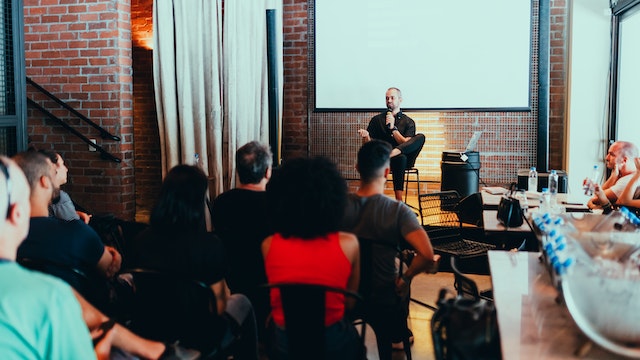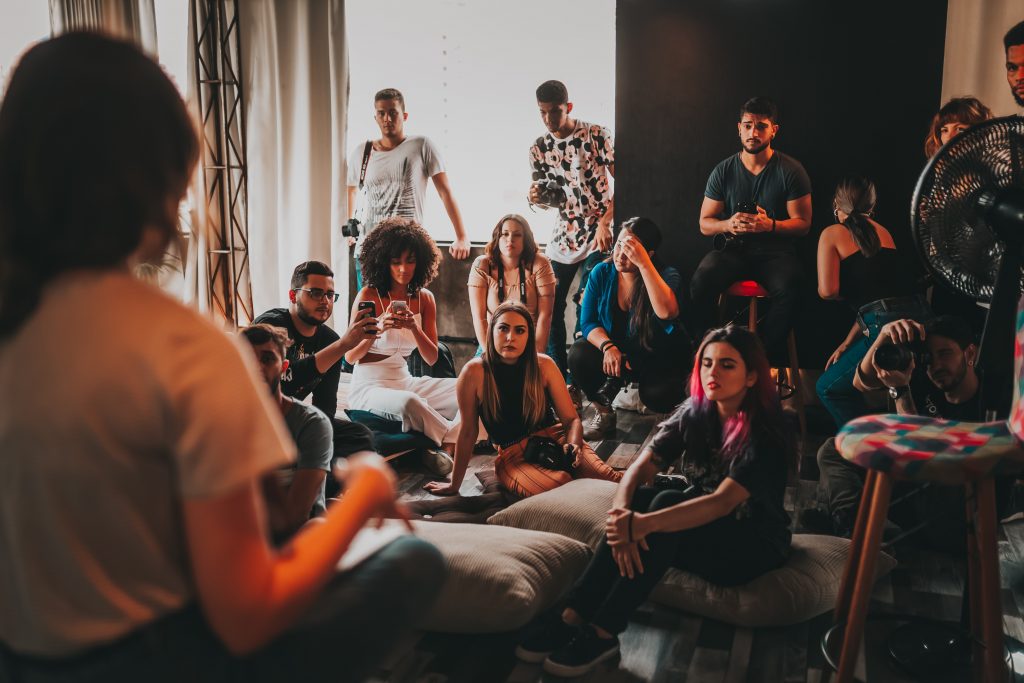How working on verbal storytelling with an individual can help you in the preliminary stages of crafting your non-fiction story and propel you through fears of public speaking.

Connecting with others is important.
You have a memory, a story to be shared, but how do you approach crafting that pocket of time into a shareable experience? How do you reach out to connect with others when your anxiety holds you back? This week I had the chance to try, for the first time, a one on one workshop. It was a great way to begin the process of discovering new ways to see my own story.
- Public Speaking: a Formidable Foe.
Sharing your own true story can be scary.
For many, public speaking is worse. Now put those two together and you have live storytelling. Imagine me: in sixth grade, assigned a project where I had to share the story of an item of importance in my life.
I chose to tell the story of my apartment burning down. The charred and chipped piggy bank anchored me to the past. I can see the porcelain pig’s nose sticking out of the soot. We’d been living on the second story, just above my mother’s restaurant. When the flames ate away the floor, it all collapsed. That piggy bank was all that survived of my childhood. (Minus a couple Fanta cans, which hadn’t even burst!)
The blank stares, occasionally scattered with giggles… terrified.
Moments like that are hard to forget. It is easier to remember all the times you have failed (or felt as if you did) in front of others, when moments of connection can be the quiet click of someone else listening and feeling heard, or moved, or even sad, of someone feeling anything.
That’s why I recommend a preliminary 1:1 storytelling session with Story Luck.
Instead of diving into vocally sharing your story at lunch, or trying to bring it to an open mic, you can allow your toes to ease into the storytelling sphere. If you first acclimate to having your words deliver your personal story into open space with one person, then maybe inching into sharing it with five people may not feel as daunting. And after that, maybe even an audience. Imagine the feeling of being able to share your experience with a room full of people when doing so in front of five once felt impossible.
- Discussion as a Tool for Illuminating the Hidden.
We all know the saying you can’t see the forest for the trees.
Recounting a memory that you have mentally traveled through the same way over and over… that story becomes the metaphorical tree. Stepping beck and listening to the takeaways from someone who has deeply listened to your story opens up space to see broader perspective.
Maybe your particular story has been held somewhere tight for years. Maybe it’s from last weekend and on the tip of your tongue. Telling your story and working with someone 1:1 can illuminate details you don’t notice anymore because you’ve told your story so many times it’s automatic.
- Vocal Punctuation and Font as Tools for Narrative Performance.
Vocally sharing a story has its own punctuation and font.
The listener is informed by where and how you pause, or smile, or scowl, or even exhale. Vocal inflection can usher in urgency like a dash from one word to the next. If you are the type who needs a couple minutes (or possibly 45 if you’re anything like me) to get comfortable enough to relax, a 1:1 setting works great.
A conversational workshop setting opens up space to explore.
How are your reactions are perceived? How can you fine tune them? As someone who cried before most of my college presentations, I know that one of the first things to go when public speaking anxiety sets in is a visible calm composure and an unwavering voice. Watching someone else who knows how to use vocal and facial movement to push a story forward is great, and if that person can also give feedback even better.
Even though memory is in the past, there is still room for reflection and change—for finding new angles in a story that was once so solid. But stories aren’t solid, they are subjective, and we’re meant to change them as we change over time. They are big enough to hold layers of truth.
I hope you can find that the encroaching fear of public speaking does not have to hold you back from sharing your story on the many forms stages can take.



